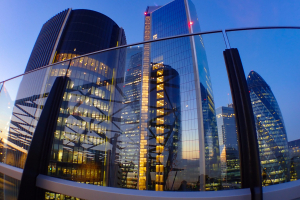Support migrant centric journalism today and donate

By Sanwar Ali:
The UK government's decision to raise visa fees has triggered a wave of criticism from various quarters, including businesses and migrants. These increases are seen as a significant barrier for key workers, artists, performers, and business people who wish to visit or work in the UK. UK employers with a sponsor licence already pay very high fees to sponsor overseas workers for a Skilled Worker visa. This article sheds light on the controversy surrounding these hikes and the adverse impacts they're projected to have on the UK's economy and its international reputation.
A Brief Overview of the Fee Increases
The UK government recently announced a considerable increase in visa application fees and the Immigration Health Surcharge. Here are the key points:
- Work and visit visa fees will see a 15% hike.
- Other types of visas, including student visas, certificates of sponsorship (CoS), settlement, citizenship, wider entry clearance and leave to remain, as well as priority visas, will be subject to at least a 20% increase.
- The main Immigration Health Surcharge rate will go up to £1,035, with a lower rate for students and applicants under 18 years of age increasing to £776.
- The Immigration Skills Charge fee, which stands at £1000/£364 per year based on the size of the company, may also see a rise, though this was not explicitly mentioned in the announcement.
The new rates have attracted widespread criticism, with many arguing that they will deepen inequalities in the visa application process and push more migrants into financial difficulties.
The Rationale Behind the Increases
The UK government has justified these increases by stating that the additional funds will be used to finance public sector pay rises. The fee increases are projected to generate around £1 billion in revenue, which will be allocated towards a 6% increase in pay for junior doctors and hospital consultants, and a 6.5% increase for teachers.
However, this explanation has not quelled the rising tide of criticism. In fact, it has sparked a debate over the ethics of using visa fees to finance public sector wage hikes.
The Impact on Visa Applicants
The visa fee increases will undoubtedly impose a significant financial burden on visa applicants, potentially pushing many into debt. As a result, these individuals might become more vulnerable and exploitable.
Immigration fees in the UK are already higher than those in many European countries and the US, and the current hikes will only exacerbate the situation. The situation is particularly difficult for workers who are required to renew their visas regularly. They will now have to deal with the recurring high payments, which might force them into debt or lead them to become undocumented, with the risk of immigration detention and deportation.
The Risk of Labour Exploitation
The higher visa fees are likely to result in more debt for migrant workers, thereby increasing their dependence on their employers, who might also be their visa sponsors. This could lead to a power imbalance, causing more people to fall prey to exploitative work conditions, including trafficking. As workers become tied to their employment due to their debts, they may find it difficult to leave abusive and exploitative work situations for fear of not being able to renew their visas and being deported.
The Impact on Equality in the Visa Application Process
The visa fee increases have been criticised for potentially deepening inequalities in the visa application process. A study by the Lago Collective, a London-based platform for creatives, innovators, and policymakers, found that applicants from African countries like Algeria, Nigeria, and Ghana were more likely to have their visa applications rejected compared to applicants from countries like China and Turkey.
The visa fee hike is expected to further these inequalities. As mentioned in "The National News" Marta Foresti, the founder and chief executive of the Lago Collective, points out, "If it's already four times as hard for Nigerians to get visas to the UK [compared to Chinese applicants], then by definition, it will be four times as expensive."
:quality(70)/cloudfront-eu-central-1.images.arcpublishing.com/thenational/5BIIYC4PHBAH7ORJG4O3Y4X7NA.jpg)
The visa fee increase could also have a negative impact on the UK's ability to attract talent, workers, and tourists from emerging economies in Africa. This could result in missed opportunities for the UK, as these individuals might not be able to shop in UK stores, perform in UK concert halls, or invest in key businesses.
The Impact on the UK's Arts and Entertainment Sector
The UK's arts and entertainment sector, which relies heavily on international collaborations, could also be significantly affected by the visa fee increases. The country's reputation for arts and theatre could be at risk if it becomes more difficult for international artists to visit and perform in the UK.
The fee increase could also impact popular music genres like Afrobeat, which has a massive fan base in the UK. With Nigerian music industry revenue predicted to reach $44 million in 2023, the increased visa costs could prevent Afrobeat artists from performing in the UK, thereby affecting the revenue of the music industry.
The Impact on Sectors with Workforce Shortages
The visa fee increase could also exacerbate the workforce shortage in several sectors, including healthcare. The National Health Service (NHS), for example, relies heavily on workers born outside the UK. According to census data from the Office of National Statistics, over a quarter of doctors (26.3%) were born in the Middle East and Asia, while nearly a tenth (8.5%) were born in Africa.
The visa fee increases, coupled with the fact that migrants are effectively 'taxed twice' to access NHS services, could deter foreign-born workers from coming to the UK, thereby worsening the workforce shortage in these sectors.
The Impact on Businesses
Businesses, particularly those that sponsor overseas workers, have also voiced their concern over the visa fee increases. They argue that these hikes could deter skilled workers from applying for UK visas, which could exacerbate skills shortages and impact their operations.
Moreover, the changes to the sponsorship scheme, including the introduction of a new 'Sponsor a Worker' scheme, could create additional complications for businesses. Under the new scheme, which is set to be tested in 2024, visas will be issued directly to workers rather than through their employers. This could potentially increase the administrative burden on businesses.
The Call for Change
In light of the criticism, various parties have called on the UK government to reconsider the fee increases. Key demands include scrapping the planned increases, setting immigration fees at a level that covers only administrative costs, revoking the NHS surcharge, repealing the Illegal Working Offence, and introducing secure reporting channels to enable workers to report workplace abuse, regardless of their immigration status.
Conclusion
The UK visa fee increase has sparked considerable controversy, with critics arguing that it will have numerous adverse impacts on the UK's economy, its international reputation, and the well-being of migrants. As the debate continues, it remains to be seen how the UK government will respond to these concerns.
How Workpermit.com Can Help with Sponsor Licences
If you need help with employing Skilled Workers and help to apply for a Sponsor Licence, including complying with your Sponsor Licence obligations, Workpermit.com can help.
For more information and advice, please contact us at 0344 991 9222 or at london@workpermit.com(link sends e-mail)





















